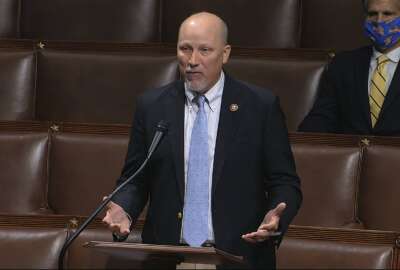
The federal workforce: Two million, or just you?
Sometimes working along can be downright pleasant. Sometimes you're all by yourself pursuing injustice.
You can be all alone, even in a workforce of more than two million. Here are two recent examples.
In Maine a couple of weeks ago, I was taking a morning walk on a coastal road. On a bluff I saw a spit of land poking out into the sea. It struck me, that looks like the Bush estate I’ve seen in pictures! Around the next bend, sure enough, was a long driveway. Just a few yards in from the road, a casually dressed man sat in a black Suburban parked diagonally across the driveway. A sign read, “Authorized Vehicles Only.”
I chatted with the Secret Service agent, who appeared alert but welcoming to have someone to chat with. At this hour on a Sunday morning, only the occasional jogger strode by, and very few cars. Ocean Avenue fronts one magnificent, shingled home after another. He knew I knew he was Secret Service, even though he didn’t say so explicitly. I told him my name and what I do, mentioning that most of my Secret Service interviews over the years have had to do with the agency’s currency protection mission, rather than personal protection, which they don’t like to talk about.
“You don’t mean authorized vehicles only, you mean authorized anything,” I said, referring to the sign. He replied, “Well, it’s a private residence and the road is pretty narrow.” It’s also a road over which passed famous people ranging from Margaret Thatcher to Vladimir Putin.
Not wanting to pester the agent on duty, I resumed my walk after a few minutes of talking. That must be a lot better posting in the summer — with the car windows down, a pleasant breeze coming in off Walker’s Point — than in the fierce Maine winter. Whatever the season, a few hours of solitude must contrast nicely with, say, the endless crowded frenzy of protecting an incumbent president.
My next example is of someone who mostly worked in a regular office setting with other people, but who prosecuted a long personal battle alone. And not along a pleasant seacoast, but rather in a western desert. As an aside, it’s a good illustration of why a fully functional Merit Systems Protection Board, including the Board itself, remains essential to the federal workforce.
Angelina Feesago is a produce manager at the Defense Commissary Agency, in Twentynine Palms, California. She and her crew are responsible for the fruits and vegetables. Produce manager is a GS-7 level job, the top pay for which is $50,000. Not McMansion-in-the-‘burbs-with-a-Tesla pay.
She recently prevailed when her employer appealed her case to the Merit Systems Protection Board. An MSPB administrative judge had reversed a demotion on the grounds of unacceptable performance. The demotion occurred in January 2016 — nearly seven years ago. She appealed her demotion on the grounds of race discrimination, whistleblower reprisal and harmful procedural error.
In cases like this no one is ever 100% right or wrong. The points of law and procedure can get detailed and picky. But ultimately a judge found, and the recently reempaneled Board affirmed, that Feesago was done wrong in being demoted to GS-4 with its associated drop in pay. The agency was sometimes vague in its performance standards. When it was more explicit, it kept changing the standards or stating irrelevant ones, or not adequately informing her of them.
Moreover, Commissary increased Feesago’s workload by firing someone else the day before her performance improvement period, or PIP, commenced.
In the Board’s words: “We agree with the administrative judge that the drop in staffing during the PIP effectively imposed a higher level of performance on the appellant than previously was required of her, and thus, the agency did not afford her a reasonable opportunity to improve.”
The back and forth goes on and on, but the bottom line is that the Defense Commissary Agency must reinstate Feedago to the position and rank she held as of May 1, 2016, and give her back pay from that date.
What about the “alone” idea? The cover sheet of the MSPB findings have two little syllables next to her name: pro se. Meaning she represented herself. Alone, she navigated the six-and-a-half-year pursuit on her own. I haven’t talked to Feesago and can’t comment on her motivations. In general, though, it takes a lot of fortitude to try and redress a situation for so many years. Many people would have quit and found other work. Thus I infer this GS-7 produce manager felt a sense of injustice.
She won, alone.
Copyright © 2024 Federal News Network. All rights reserved. This website is not intended for users located within the European Economic Area.
Tom Temin is host of the Federal Drive and has been providing insight on federal technology and management issues for more than 30 years.
Follow @tteminWFED





